Extra Virgin Olive Oil
Virgin Olive Oil
Refined Olive Oil
Pure Olive Oil
Bottles
Cans
Tetra Packs
Bulk Containers
Supermarkets/Hypermarkets
Convenience Stores
Online Retail
Specialty Stores
Household
Food Service
Industrial
North America
Europe
South America
Asia Pacific
Middle East and Africa
North America Outlook (USD Billion, 2019-2035)
North America Olive Oil Market by Type
Extra Virgin Olive Oil
Virgin Olive Oil
Refined Olive Oil
Pure Olive Oil
North America Olive Oil Market by Packaging Type
Bottles
Cans
Tetra Packs
Bulk Containers
North America Olive Oil Market by Distribution Channel Type
Supermarkets/Hypermarkets
Convenience Stores
Online Retail
Specialty Stores
North America Olive Oil Market by End Use Type
Household
Food Service
Industrial
North America Olive Oil Market by Regional Type
US
Canada
US Outlook (USD Billion, 2019-2035)
US Olive Oil Market by Type
Extra Virgin Olive Oil
Virgin Olive Oil
Refined Olive Oil
Pure Olive Oil
US Olive Oil Market by Packaging Type
Bottles
Cans
Tetra Packs
Bulk Containers
US Olive Oil Market by Distribution Channel Type
Supermarkets/Hypermarkets
Convenience Stores
Online Retail
Specialty Stores
US Olive Oil Market by End Use Type
Household
Food Service
Industrial
CANADA Outlook (USD Billion, 2019-2035)
CANADA Olive Oil Market by Type
Extra Virgin Olive Oil
Virgin Olive Oil
Refined Olive Oil
Pure Olive Oil
CANADA Olive Oil Market by Packaging Type
Bottles
Cans
Tetra Packs
Bulk Containers
CANADA Olive Oil Market by Distribution Channel Type
Supermarkets/Hypermarkets
Convenience Stores
Online Retail
Specialty Stores
CANADA Olive Oil Market by End Use Type
Household
Food Service
Industrial
Europe Outlook (USD Billion, 2019-2035)
Europe Olive Oil Market by Type
Extra Virgin Olive Oil
Virgin Olive Oil
Refined Olive Oil
Pure Olive Oil
Europe Olive Oil Market by Packaging Type
Bottles
Cans
Tetra Packs
Bulk Containers
Europe Olive Oil Market by Distribution Channel Type
Supermarkets/Hypermarkets
Convenience Stores
Online Retail
Specialty Stores
Europe Olive Oil Market by End Use Type
Household
Food Service
Industrial
Europe Olive Oil Market by Regional Type
Germany
UK
France
Russia
Italy
Spain
Rest of Europe
GERMANY Outlook (USD Billion, 2019-2035)
GERMANY Olive Oil Market by Type
Extra Virgin Olive Oil
Virgin Olive Oil
Refined Olive Oil
Pure Olive Oil
GERMANY Olive Oil Market by Packaging Type
Bottles
Cans
Tetra Packs
Bulk Containers
GERMANY Olive Oil Market by Distribution Channel Type
Supermarkets/Hypermarkets
Convenience Stores
Online Retail
Specialty Stores
GERMANY Olive Oil Market by End Use Type
Household
Food Service
Industrial
UK Outlook (USD Billion, 2019-2035)
UK Olive Oil Market by Type
Extra Virgin Olive Oil
Virgin Olive Oil
Refined Olive Oil
Pure Olive Oil
UK Olive Oil Market by Packaging Type
Bottles
Cans
Tetra Packs
Bulk Containers
UK Olive Oil Market by Distribution Channel Type
Supermarkets/Hypermarkets
Convenience Stores
Online Retail
Specialty Stores
UK Olive Oil Market by End Use Type
Household
Food Service
Industrial
FRANCE Outlook (USD Billion, 2019-2035)
FRANCE Olive Oil Market by Type
Extra Virgin Olive Oil
Virgin Olive Oil
Refined Olive Oil
Pure Olive Oil
FRANCE Olive Oil Market by Packaging Type
Bottles
Cans
Tetra Packs
Bulk Containers
FRANCE Olive Oil Market by Distribution Channel Type
Supermarkets/Hypermarkets
Convenience Stores
Online Retail
Specialty Stores
FRANCE Olive Oil Market by End Use Type
Household
Food Service
Industrial
RUSSIA Outlook (USD Billion, 2019-2035)
RUSSIA Olive Oil Market by Type
Extra Virgin Olive Oil
Virgin Olive Oil
Refined Olive Oil
Pure Olive Oil
RUSSIA Olive Oil Market by Packaging Type
Bottles
Cans
Tetra Packs
Bulk Containers
RUSSIA Olive Oil Market by Distribution Channel Type
Supermarkets/Hypermarkets
Convenience Stores
Online Retail
Specialty Stores
RUSSIA Olive Oil Market by End Use Type
Household
Food Service
Industrial
ITALY Outlook (USD Billion, 2019-2035)
ITALY Olive Oil Market by Type
Extra Virgin Olive Oil
Virgin Olive Oil
Refined Olive Oil
Pure Olive Oil
ITALY Olive Oil Market by Packaging Type
Bottles
Cans
Tetra Packs
Bulk Containers
ITALY Olive Oil Market by Distribution Channel Type
Supermarkets/Hypermarkets
Convenience Stores
Online Retail
Specialty Stores
ITALY Olive Oil Market by End Use Type
Household
Food Service
Industrial
SPAIN Outlook (USD Billion, 2019-2035)
SPAIN Olive Oil Market by Type
Extra Virgin Olive Oil
Virgin Olive Oil
Refined Olive Oil
Pure Olive Oil
SPAIN Olive Oil Market by Packaging Type
Bottles
Cans
Tetra Packs
Bulk Containers
SPAIN Olive Oil Market by Distribution Channel Type
Supermarkets/Hypermarkets
Convenience Stores
Online Retail
Specialty Stores
SPAIN Olive Oil Market by End Use Type
Household
Food Service
Industrial
REST OF EUROPE Outlook (USD Billion, 2019-2035)
REST OF EUROPE Olive Oil Market by Type
Extra Virgin Olive Oil
Virgin Olive Oil
Refined Olive Oil
Pure Olive Oil
REST OF EUROPE Olive Oil Market by Packaging Type
Bottles
Cans
Tetra Packs
Bulk Containers
REST OF EUROPE Olive Oil Market by Distribution Channel Type
Supermarkets/Hypermarkets
Convenience Stores
Online Retail
Specialty Stores
REST OF EUROPE Olive Oil Market by End Use Type
Household
Food Service
Industrial
APAC Outlook (USD Billion, 2019-2035)
APAC Olive Oil Market by Type
Extra Virgin Olive Oil
Virgin Olive Oil
Refined Olive Oil
Pure Olive Oil
APAC Olive Oil Market by Packaging Type
Bottles
Cans
Tetra Packs
Bulk Containers
APAC Olive Oil Market by Distribution Channel Type
Supermarkets/Hypermarkets
Convenience Stores
Online Retail
Specialty Stores
APAC Olive Oil Market by End Use Type
Household
Food Service
Industrial
APAC Olive Oil Market by Regional Type
China
India
Japan
South Korea
Malaysia
Thailand
Indonesia
Rest of APAC
CHINA Outlook (USD Billion, 2019-2035)
CHINA Olive Oil Market by Type
Extra Virgin Olive Oil
Virgin Olive Oil
Refined Olive Oil
Pure Olive Oil
CHINA Olive Oil Market by Packaging Type
Bottles
Cans
Tetra Packs
Bulk Containers
CHINA Olive Oil Market by Distribution Channel Type
Supermarkets/Hypermarkets
Convenience Stores
Online Retail
Specialty Stores
CHINA Olive Oil Market by End Use Type
Household
Food Service
Industrial
INDIA Outlook (USD Billion, 2019-2035)
INDIA Olive Oil Market by Type
Extra Virgin Olive Oil
Virgin Olive Oil
Refined Olive Oil
Pure Olive Oil
INDIA Olive Oil Market by Packaging Type
Bottles
Cans
Tetra Packs
Bulk Containers
INDIA Olive Oil Market by Distribution Channel Type
Supermarkets/Hypermarkets
Convenience Stores
Online Retail
Specialty Stores
INDIA Olive Oil Market by End Use Type
Household
Food Service
Industrial
JAPAN Outlook (USD Billion, 2019-2035)
JAPAN Olive Oil Market by Type
Extra Virgin Olive Oil
Virgin Olive Oil
Refined Olive Oil
Pure Olive Oil
JAPAN Olive Oil Market by Packaging Type
Bottles
Cans
Tetra Packs
Bulk Containers
JAPAN Olive Oil Market by Distribution Channel Type
Supermarkets/Hypermarkets
Convenience Stores
Online Retail
Specialty Stores
JAPAN Olive Oil Market by End Use Type
Household
Food Service
Industrial
SOUTH KOREA Outlook (USD Billion, 2019-2035)
SOUTH KOREA Olive Oil Market by Type
Extra Virgin Olive Oil
Virgin Olive Oil
Refined Olive Oil
Pure Olive Oil
SOUTH KOREA Olive Oil Market by Packaging Type
Bottles
Cans
Tetra Packs
Bulk Containers
SOUTH KOREA Olive Oil Market by Distribution Channel Type
Supermarkets/Hypermarkets
Convenience Stores
Online Retail
Specialty Stores
SOUTH KOREA Olive Oil Market by End Use Type
Household
Food Service
Industrial
MALAYSIA Outlook (USD Billion, 2019-2035)
MALAYSIA Olive Oil Market by Type
Extra Virgin Olive Oil
Virgin Olive Oil
Refined Olive Oil
Pure Olive Oil
MALAYSIA Olive Oil Market by Packaging Type
Bottles
Cans
Tetra Packs
Bulk Containers
MALAYSIA Olive Oil Market by Distribution Channel Type
Supermarkets/Hypermarkets
Convenience Stores
Online Retail
Specialty Stores
MALAYSIA Olive Oil Market by End Use Type
Household
Food Service
Industrial
THAILAND Outlook (USD Billion, 2019-2035)
THAILAND Olive Oil Market by Type
Extra Virgin Olive Oil
Virgin Olive Oil
Refined Olive Oil
Pure Olive Oil
THAILAND Olive Oil Market by Packaging Type
Bottles
Cans
Tetra Packs
Bulk Containers
THAILAND Olive Oil Market by Distribution Channel Type
Supermarkets/Hypermarkets
Convenience Stores
Online Retail
Specialty Stores
THAILAND Olive Oil Market by End Use Type
Household
Food Service
Industrial
INDONESIA Outlook (USD Billion, 2019-2035)
INDONESIA Olive Oil Market by Type
Extra Virgin Olive Oil
Virgin Olive Oil
Refined Olive Oil
Pure Olive Oil
INDONESIA Olive Oil Market by Packaging Type
Bottles
Cans
Tetra Packs
Bulk Containers
INDONESIA Olive Oil Market by Distribution Channel Type
Supermarkets/Hypermarkets
Convenience Stores
Online Retail
Specialty Stores
INDONESIA Olive Oil Market by End Use Type
Household
Food Service
Industrial
REST OF APAC Outlook (USD Billion, 2019-2035)
REST OF APAC Olive Oil Market by Type
Extra Virgin Olive Oil
Virgin Olive Oil
Refined Olive Oil
Pure Olive Oil
REST OF APAC Olive Oil Market by Packaging Type
Bottles
Cans
Tetra Packs
Bulk Containers
REST OF APAC Olive Oil Market by Distribution Channel Type
Supermarkets/Hypermarkets
Convenience Stores
Online Retail
Specialty Stores
REST OF APAC Olive Oil Market by End Use Type
Household
Food Service
Industrial
South America Outlook (USD Billion, 2019-2035)
South America Olive Oil Market by Type
Extra Virgin Olive Oil
Virgin Olive Oil
Refined Olive Oil
Pure Olive Oil
South America Olive Oil Market by Packaging Type
Bottles
Cans
Tetra Packs
Bulk Containers
South America Olive Oil Market by Distribution Channel Type
Supermarkets/Hypermarkets
Convenience Stores
Online Retail
Specialty Stores
South America Olive Oil Market by End Use Type
Household
Food Service
Industrial
South America Olive Oil Market by Regional Type
Brazil
Mexico
Argentina
Rest of South America
BRAZIL Outlook (USD Billion, 2019-2035)
BRAZIL Olive Oil Market by Type
Extra Virgin Olive Oil
Virgin Olive Oil
Refined Olive Oil
Pure Olive Oil
BRAZIL Olive Oil Market by Packaging Type
Bottles
Cans
Tetra Packs
Bulk Containers
BRAZIL Olive Oil Market by Distribution Channel Type
Supermarkets/Hypermarkets
Convenience Stores
Online Retail
Specialty Stores
BRAZIL Olive Oil Market by End Use Type
Household
Food Service
Industrial
MEXICO Outlook (USD Billion, 2019-2035)
MEXICO Olive Oil Market by Type
Extra Virgin Olive Oil
Virgin Olive Oil
Refined Olive Oil
Pure Olive Oil
MEXICO Olive Oil Market by Packaging Type
Bottles
Cans
Tetra Packs
Bulk Containers
MEXICO Olive Oil Market by Distribution Channel Type
Supermarkets/Hypermarkets
Convenience Stores
Online Retail
Specialty Stores
MEXICO Olive Oil Market by End Use Type
Household
Food Service
Industrial
ARGENTINA Outlook (USD Billion, 2019-2035)
ARGENTINA Olive Oil Market by Type
Extra Virgin Olive Oil
Virgin Olive Oil
Refined Olive Oil
Pure Olive Oil
ARGENTINA Olive Oil Market by Packaging Type
Bottles
Cans
Tetra Packs
Bulk Containers
ARGENTINA Olive Oil Market by Distribution Channel Type
Supermarkets/Hypermarkets
Convenience Stores
Online Retail
Specialty Stores
ARGENTINA Olive Oil Market by End Use Type
Household
Food Service
Industrial
REST OF SOUTH AMERICA Outlook (USD Billion, 2019-2035)
REST OF SOUTH AMERICA Olive Oil Market by Type
Extra Virgin Olive Oil
Virgin Olive Oil
Refined Olive Oil
Pure Olive Oil
REST OF SOUTH AMERICA Olive Oil Market by Packaging Type
Bottles
Cans
Tetra Packs
Bulk Containers
REST OF SOUTH AMERICA Olive Oil Market by Distribution Channel Type
Supermarkets/Hypermarkets
Convenience Stores
Online Retail
Specialty Stores
REST OF SOUTH AMERICA Olive Oil Market by End Use Type
Household
Food Service
Industrial
MEA Outlook (USD Billion, 2019-2035)
MEA Olive Oil Market by Type
Extra Virgin Olive Oil
Virgin Olive Oil
Refined Olive Oil
Pure Olive Oil
MEA Olive Oil Market by Packaging Type
Bottles
Cans
Tetra Packs
Bulk Containers
MEA Olive Oil Market by Distribution Channel Type
Supermarkets/Hypermarkets
Convenience Stores
Online Retail
Specialty Stores
MEA Olive Oil Market by End Use Type
Household
Food Service
Industrial
MEA Olive Oil Market by Regional Type
GCC Countries
South Africa
Rest of MEA
GCC COUNTRIES Outlook (USD Billion, 2019-2035)
GCC COUNTRIES Olive Oil Market by Type
Extra Virgin Olive Oil
Virgin Olive Oil
Refined Olive Oil
Pure Olive Oil
GCC COUNTRIES Olive Oil Market by Packaging Type
Bottles
Cans
Tetra Packs
Bulk Containers
GCC COUNTRIES Olive Oil Market by Distribution Channel Type
Supermarkets/Hypermarkets
Convenience Stores
Online Retail
Specialty Stores
GCC COUNTRIES Olive Oil Market by End Use Type
Household
Food Service
Industrial
SOUTH AFRICA Outlook (USD Billion, 2019-2035)
SOUTH AFRICA Olive Oil Market by Type
Extra Virgin Olive Oil
Virgin Olive Oil
Refined Olive Oil
Pure Olive Oil
SOUTH AFRICA Olive Oil Market by Packaging Type
Bottles
Cans
Tetra Packs
Bulk Containers
SOUTH AFRICA Olive Oil Market by Distribution Channel Type
Supermarkets/Hypermarkets
Convenience Stores
Online Retail
Specialty Stores
SOUTH AFRICA Olive Oil Market by End Use Type
Household
Food Service
Industrial
REST OF MEA Outlook (USD Billion, 2019-2035)
REST OF MEA Olive Oil Market by Type
Extra Virgin Olive Oil
Virgin Olive Oil
Refined Olive Oil
Pure Olive Oil
REST OF MEA Olive Oil Market by Packaging Type
Bottles
Cans
Tetra Packs
Bulk Containers
REST OF MEA Olive Oil Market by Distribution Channel Type
Supermarkets/Hypermarkets
Convenience Stores
Online Retail
Specialty Stores
REST OF MEA Olive Oil Market by End Use Type
Household
Food Service
Industrial


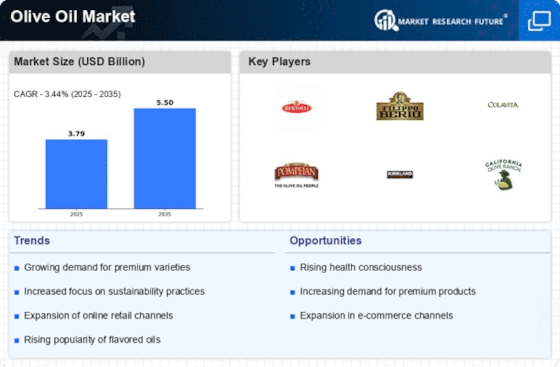
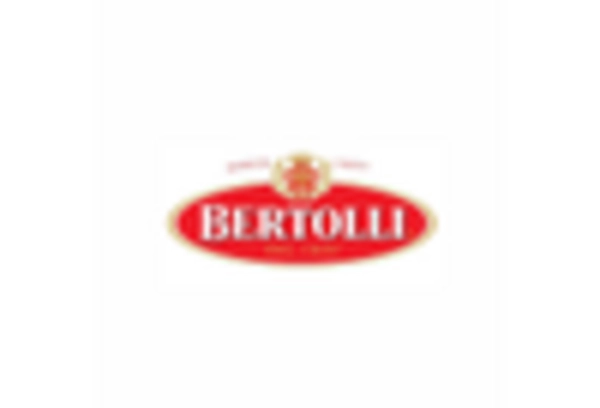
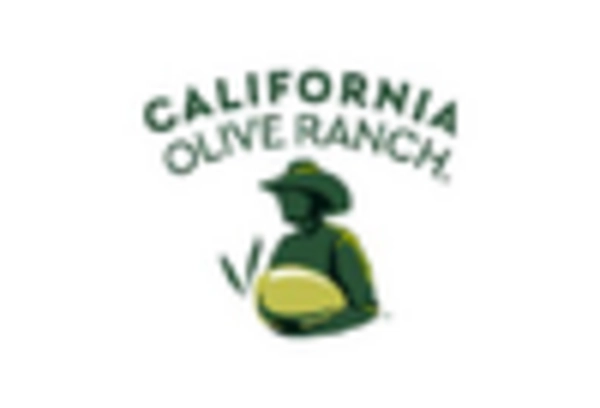
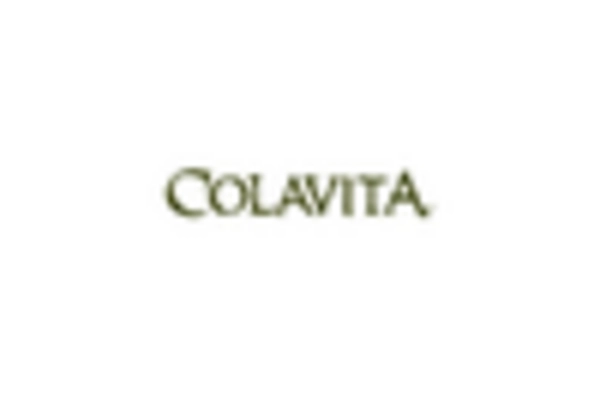
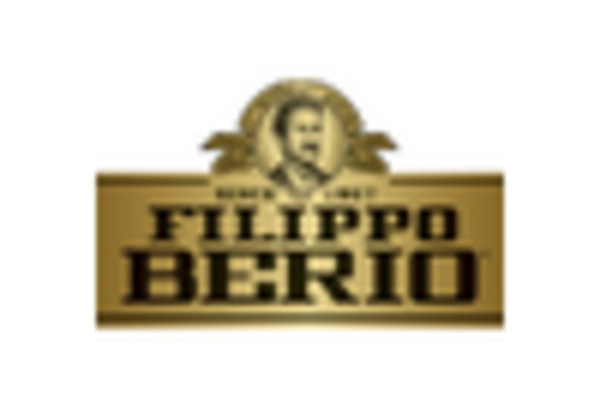
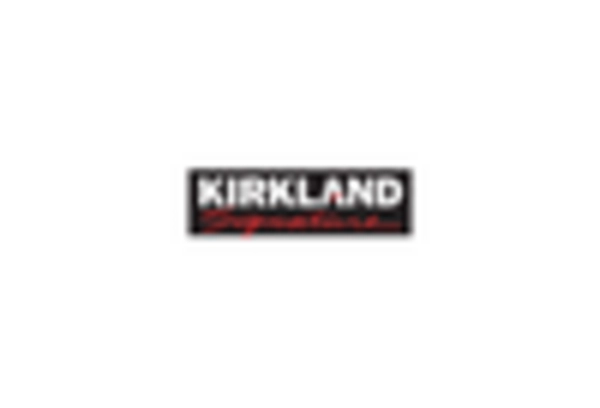
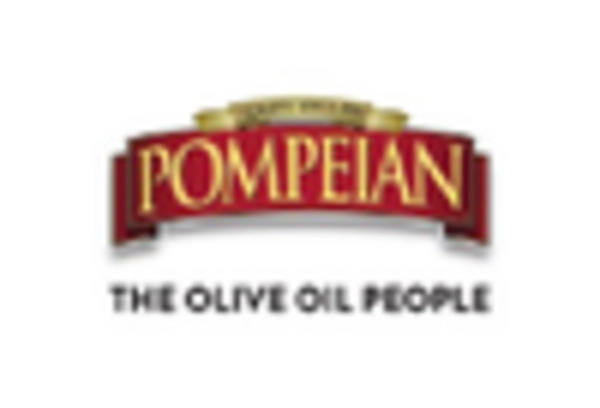









Leave a Comment